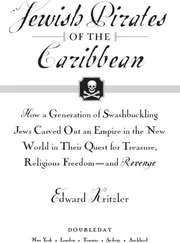And, Rochalle was fast asleep.
Rochalle fell asleep, and dreamt that Stempenyu was fastening a row of corals around her neck. On one side of her stood her father-in-law, wearing his phylacteries and praying shawl; and, Freidel was beating him, was smacking his face for him, as furiously as she could. Moshe-Mendel was dead drunk, and was riding on a pony, and making it perform all sorts of tricks, while Stempenyu was still hanging the corals around her neck. On the other side of her stood Chaya-Ettel, dressed in her Sabbath clothes. She was covered with the most beautiful jewels, like a “Queen’s Daughter,” and she was smiling pleasantly and kindly, as she went on lighting a number of candles one after the other.
“What are you doing, Chaya-Ettel?” asked Rochalle. ‘Why are you lighting so many candles?”
“What a question!” answered Chaya-Ettel, with a little laugh. “Isn’t it the Sabbath eve, and quite time to light the Sabbath candles?”
Rochalle looked at the candles. How brightly and clearly they were burning. And all the time Stempenyu was still hanging the corals around her neck. He was standing so close to her that she could hear his breath coming and going. He was staring straight into her eyes. And, again his glances seemed to warm her through and through. She was delighted with herself. She laughed joyously and sang. And Stempenyu was still hanging the corals about her neck.
Suddenly the lights were extinguished, and all those who had stood around her had disappeared. It grew pitch dark and very cold, as in a cellar or in a grave. The wind blew and whistled, and there arose a sad and mournful sound — a wailing chant. The sound of a fiddle was also to be heard — the familiar sounds played on Stempenyu’s fiddle. Stempenyu himself was gone, but his fiddle was still to be heard. And, it was terribly sad and lonely. It was like the sound of someone weeping… It was Chaya Ettel weeping for her lost youth, for the days which had fled from her as if they were no more than a dream. She was weeping, too, after her lover, Benjamin, who had given her up for another woman — who had forgotten all the vows he had made to love her forever. He had forgotten her completely.
“Oh, mother!” cried Rochalle, wakening up with a start. But, in the next moment she had turned over on her side and was fast asleep again, only to continue the dream which had visited her before. The whole night she was completely entangled in her dreams, in which Stempenyu was always standing near her and trying to hang around her neck the inevitable row of corals. And, yet again Chaya-Ettel came forward, carrying the black candles and weeping and moaning, and sobbing and repeating from the prayer-book the words: “Almighty Father in Heaven! All-Powerful Creator! Lord of all Flesh! King of all kings, who from everlasting until everlasting art the One God! Let my prayers be acceptable unto Thee! Let the petition of my heart find favour in Thy eyes. Let the prayers of the upright be heard, and their petitions fulfilled! Behold! They prostrate themselves before Thy footstool! They beseech of Thee Thy mercy for all created beings as well as for themselves. They seek of Thee forgiveness; for, everything that is upon the earth is full of sin!”
Chaya-Ettel was repeating the words aloud, and weeping and moaning in the most pitiful accents, between each word…
A little later, and she was gone.
In the village of Tasapevka there was a monastery. It had been built, according to legend, by the national here, Mazeppa. A high, white stone wall encircled the monastery on all sides. And, the ground that the monastery and its garden covered was equal in size to about three-fourths of the area of the village itself. Facing one wall were the shops and the warehouses of the village. At another wall were built a number of underground passages and cellars in which had hidden long ago a whole army of Haidemaks; but, now they were used for storing away apples and other thing which need to be kept in a cold place. The third wall was covered with thorns and briars, and was overhung with poplars and other trees which grew in the monastery garden, on the other side of the wall. The fourth wall was bare and smooth. In several places there were holes, where the mortar had fallen out from between the bricks, loosening them. The wall had cried out for repairs years ago, but had been neglected. And, opposite this wall, with only the roadway intervening, there stood a group of houses and wooden isbas , farmsteads and villas, occupied by Jews as well as Christians, in about equal proportions. The little road upon which the houses stood, and which was bounded by the dead wall of the monastery, was called the Monastery Road. And, there at the corner of the road, where the first clump of trees overhung the wall, there took place the first meeting between Rochalle and Stempenyu.
The reader, who has probably been accustomed to highly interesting romances, has surely been tortured enough in reading this romance down to this particular point in the narrative, for it contains neither stirring scenes nor extraordinary happenings. No one was shot, and no one was poisoned. And neither dukes nor earls have come upon the stage, so to speak. All the characters are the most ordinary, commonplace folks of everyday life — commonplace men, ordinary musicians, and plain women of rather course grain. And, the reader is probably waiting for the Sabbath evening to come round, when will be enacted the great melodramatic scene — the romantic meeting between the hero and the heroine on the Monastery Road. But, I must say in advance that the expectation is in vain. There took place no melodramatic scene; because Rochalle did not come here after the fashion of an abandoned woman — not at all like one of those wicked women of highly spiced romances who runs to kiss her lover in secret in every dark corner. No such thing! Rochalle only wanted to see Stempenyu in order to ask him how he — a mere musician — had the audacity to write her such a letter? How he dared to forget for a moment that she was the daughter-in-law of Isaac-Naphtali, and the wife of Moshe-Mendel?
“I must prevent the like from ever happening again,” she said to herself. “I will tell him what I think of him once and for all. How does the saying go, ‘Better the first tiff than the last quarrel!’ ”
That thought did not come to her suddenly. Rochalle had time all the week, and especially on the Sabbath day, to think of everything. And oh, what she had suffered on that last day! What a terrible struggle she had had with the Spirit of Evil — with temptation. No, the name of the Spirit of Evil hardly fits in here. How could it come near her — near such a good woman, a pure and virtuous woman? How could she be connected with such a fearful person as the Spirit of Evil? How could he come near to a woman like Rochalle who had never read a romance in her life, and who knew nothing at all about love affairs, excepting the one story of Chaya-Ettel — peace be unto her! How could she come to be struggling with the Evil One? Love? Nonsense! If she were not married it might have been different. She would then have been, as they say, a free bird, her head unadorned with the matron’s cap — an individual for herself. But, a married woman — and a pious woman into the bargain, of good family, full of pride — she herself stood in the way of doing what was wrong. Her own conscience was aflame with righteous indignation. She thought that she had already committed a great wrong, and felt that she could never again lift her head for shame. She wandered about the house, finding no place for herself. Now she lay down on her bed, and again she rushed out in the open air; for it seemed to her as if she were choking — as if she could not draw her breath. And, then she was overcome with a curious feeling, as if her soul could not hold itself within her, but was trying to make its escape out into the broad world. In distraction, she betook herself to the Bible. She opened the book at random, and her eyes fell upon the following passage:
Читать дальше












